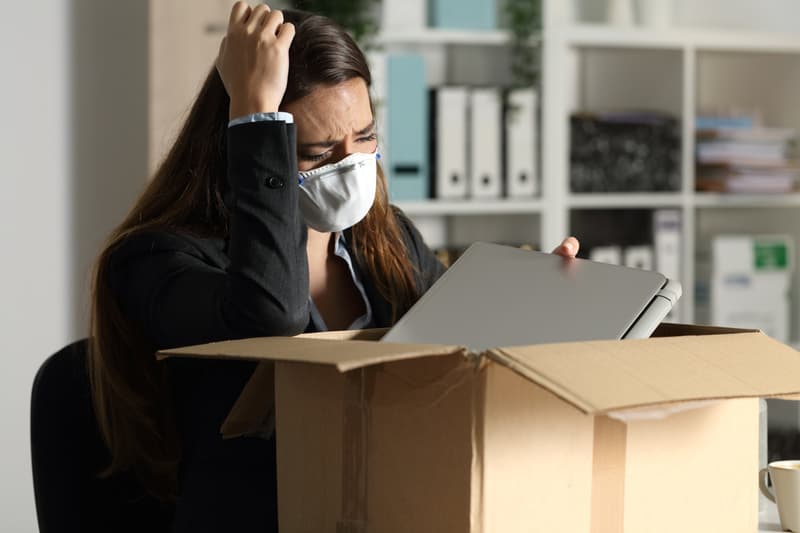Country Emergency Preparedness and Response Officer
Port Louis
- Organization: WHO - World Health Organization
- Location: Port Louis
- Grade: Mid level - NO-C, National Professional Officer - Locally recruited position
-
Occupational Groups:
- Medical Practitioners
- Humanitarian Aid and Coordination
- Disaster Management (Preparedness, Resilience, Response and Recovery)
- Emergency Aid and Response
- Closing Date: 2024-02-09
Purpose of the Post:
In the context of the WHO Health Emergencies Programme, the incumbent will manage the development of policies, strategies, action plans to strengthen the country capacities to prevent, detect, report, prepare, respond and recover from all-hazard health emergencies in the republic of Mauritius. In times of emergencies, it will be part of the WCO Mauritius strategic and operational response in support to the Ministry of Health and Wellness and other government entities. The incumbent will also support the monitoring, evaluation and objective assessment of country core capacities, ensuring the implementation of the International Health Regulations (IHR 2005). Support the Representative in coordinating in-country activities with partners contributing to emergency preparedness and response, within a country-level response system. The incumbent may be deployed to emergency operations when required.
Objectives of the Programme and of the immediate unit or field activity:
The mission of WHO’s Health Emergency Preparedness and Response (WHO HEPR) Programme aims to help countries, and to coordinator international actions, to prevent, prepare for, detect, warn, effectively and rapidly respond to, and recover from outbreaks and emergencies threatening human health.
Organizational Context:
Under the leadership and supervision of the Head of WHO Country Office and the Regional EmergencyDirector for the African Region, and in close collaboration with the whole WCO Mauritius team and the Ministry of Health and Wellness, the incumbent provides leadership and acts as an advisor forHealth Emergency Preparedness, Response, as well IHR related policies, strategies and activities, enabling the development, implementation, and monitoring of national strategies that maximize the individual and collective impact of WHO in support of the country throughout the full cycle of the emergency. The incumbent’s technical support and guidance aligns with the IHR and other international treaties, WHO Resolution and recommendations from HQ and the regional office for the prevention, prediction, detection, early warning, rapid and effective response and recovery to public health emergencies. The incumbent is however expected to exercise full judgment in adapting or modifying relevant WHO guidelines and facilitate their adaptation or development to meet particular national requirements or evolving circumstances in close coordination with the respective Regional Office and HQ. At WHO, the health capabilities needed in emergency situations include those set out in the IHR, as well as capabilities to deal with risks in the areas of: natural disasters, social unrests, emerging or re-emerging epi-/pan-demic prone diseases affecting humans or animals, food safety, chemical or radionuclear incidents; and antimicrobial resistance.
Summary of Assigned Duties:
The incumbent will perform the following duties:
1.Advise on the elaboration, implementation and evaluation of country policies, strategies and workplans pertaining to the country preparedness and response to public health threats and emergencies as well programs ensuring compliance with the International Health Regulations and the WHO's organization wide Health Emergencies Preparedness Response and Recovery (HEPR)policies and strategies.
2.Ensure the documentation of progress, outcomes, effectiveness, monitoring and evaluation of
country capacity and national action plans related to the implementation of the IHR (2005).
3.Manage the IHR work related to the required national procedures, skills, information sharing, and ensure that coordination mechanisms are established and functioning, in collaboration with effective National IHR Focal Point.
4.Support the elaboration, adaptation, application and implementation of policies, norms, standards and guidelines to support the development of and the training for national critical core capacities for global health security, including coordination, risk monitoring and prioritization and monitoring, integrated surveillance and sharing of information, early detection and investigation, effective diagnostic and laboratories capacities, safe and scalable care and case management, risk communication and community sensitization and protection, and access to countermeasures.
5.Provide technical guidance for the management of a unified surveillance and information system according to the Integrated disease surveillance and response system (IDSR) and related country data and information on technical areas such as: case incidence; case management surveillance data; laboratory surveillance data; contact tracing, etc. Support the Ministry of Health and Wellness in the implementation of the electronic IDSR system and ensure its interoperability with the HMIS/DHIS2 system.
6.Manage, analyze, systematize, and disseminate scientific and evidence-based information and technical knowledge; support the development of WHO situation reports, other related regular reports.
7.Promote multi-disciplinary and cross-cutting approaches such as One Health, and joint activities
with key partners, at the country level, such as OIE, FAO, JCAO, UNWTO, multi- and bilateral development partners, the civil society and the private sector to ensure the successful implementation, monitoring and evaluation of capacities in line with IHR (2005) requirements, as well as the identification of financing support for effective implementation of country plans.
8.If required, support the assessment of the performance of national transport, tourism, point of entries, and mass gatherings capacity, the dissemination of practical guidelines and tools to support the enhancement of the national capacities, oversee the effective implementation of national EPR systems and the implementation of best practices in accordance with IHR (2005).
9.Support and contribute technically to the resource mobilization efforts of the Country office, the
Ministry of Health and wellness and other partners to support the implementation and operationalization of strategies and action plan, when necessary.
10.Perform any other related duties, as required by the functional supervisor.
RECRUITMENT PROFILE
Competencies:
1.Producing results
2.Building and promoting partnerships across the Organization and beyond
3.Ensuring the efficient use of resources
4.Teamwork and respecting individual and cultural differences
5.Communicating in a credible and effective manner
Functional Skills and Knowledge:
1.Thorough knowledge of International Health Regulations (2005), the epidemiology of infectious diseases and other health security threats, and best practices for disease prevention and control.
2.Proven ability to coordinate and manage projects, build partnerships with multiple partners in the context of health emergencies.
3.Sound tactical thinking with the ability to formulate clear comprehensive strategies and plans and to present facts and data in a concise and effective manner
4.Demonstrated organizational skills with the ability to multi-task and produce results under pressure.
5.Solid operational skills and knowledge
6.Excellent interpersonal skills with abilities for argumentation, negotiation and persuasion with national multistakeholders and development partners
Education (Qualifications):
Essential: University degree in a public health field or a medical degree. Specialized training or
demonstrated experience in emergency management.
Desirable: Master or Post-graduate degree in public health, public health-related discipline or in emergency management/, specialized training in epidemiology from an accredited institution.
Experience:
Essential: At least five (5) years of professional experience in planning, developing and implementing health security, emergency, surveillance, disease control, and/or public health programs. Relevant experience with the inter-agency mechanisms used to coordinate international preparedness for and response to health emergencies, including those most relevant to coordination of health policy and action in health emergencies. Relevant experience in the implementation of International Health Regulations (2005).
Desirable: Relevant work experience in WHO, other UN agencies; experience working in relevant non- governmental or humanitarian organizations on emergency preparedness and response. Experience in multisectoral coordination.
Languages:
Essential: Excellent knowledge of English and French.
Other Skills:
Knowledge of office software applications, including those related to epidemiological and statistical data management.










